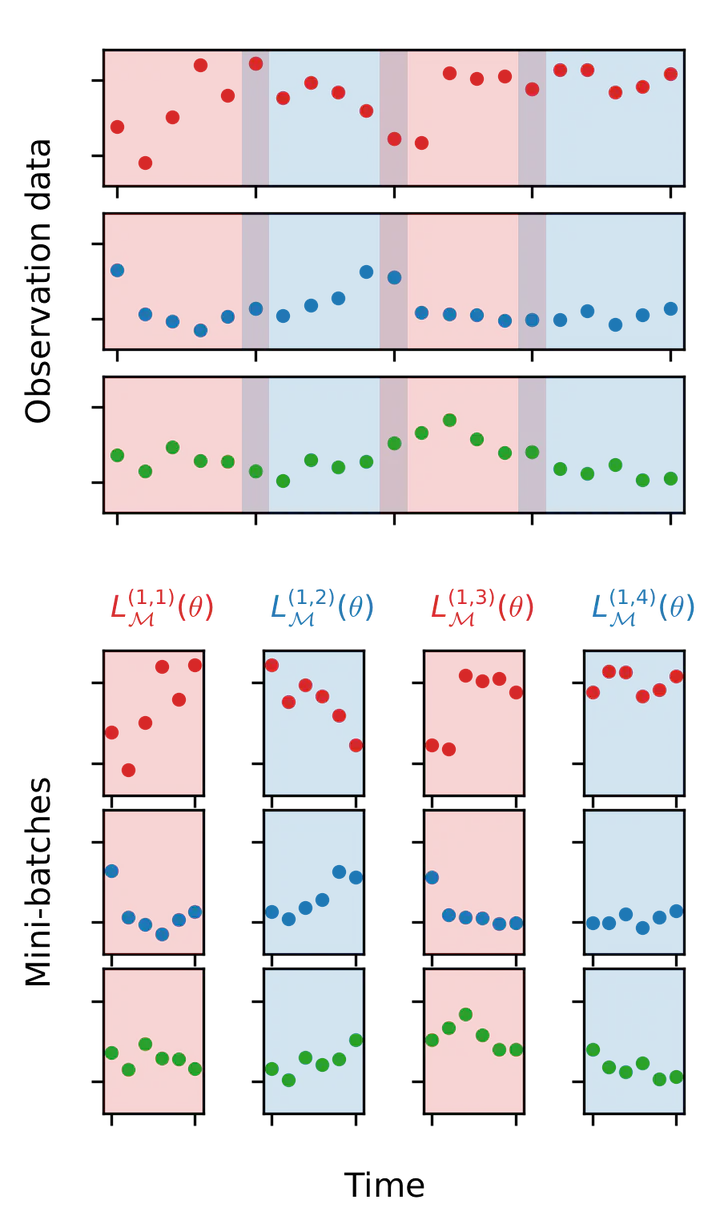Mini-batching ecological data to improve ecosystem models with machine learning
 Graphical representation of the proposed learning strategy to improve ecosystem models with data. To regularise the learning problem associated with complex ecosystem models, the time series is split into mini-batches with short time horizons (blue and red portions of the time series).
Graphical representation of the proposed learning strategy to improve ecosystem models with data. To regularise the learning problem associated with complex ecosystem models, the time series is split into mini-batches with short time horizons (blue and red portions of the time series).
Abstract
Ecosystems are involved in global biogeochemical cycles that regulate climate and provide essential services to human societies. Mechanistic models are required to describe ecosystem dynamics and anticipate their response to anthropogenic pressure, but their adoption has been limited in practice because of issues with parameter identification and because of model inaccuracies. While observations could be used to directly estimate parameters and improve models, model nonlinearities as well as shallow, incomplete and noisy datasets complicate this process. Here, we propose a machine learning (ML) framework relying on a mini-batch method combined with automatic differentiation and state-of-the-art optimizers. By splitting the data into mini-batches with a short time horizon, we show both analytically and numerically that the mini-batch method regularizes the learning problem. When combined with the proposed numerical implementation, the resulting ML framework can efficiently learn the parameter of complex dynamical models and is a workhorse for model selection. We evaluate the performance of the ML framework in recovering the dynamics of a simulated food-web. We show that it can efficiently learn from noisy, incomplete and independent time series, accurately estimating the model parameters and providing reliable short-term forecasts. We further show that the ML framework can provide statistical support for the true generating model among several candidates. In summary, the proposed ML framework can efficiently learn from data and elucidate mechanistic pathways to improve our understanding and predictions of ecosystem dynamics.